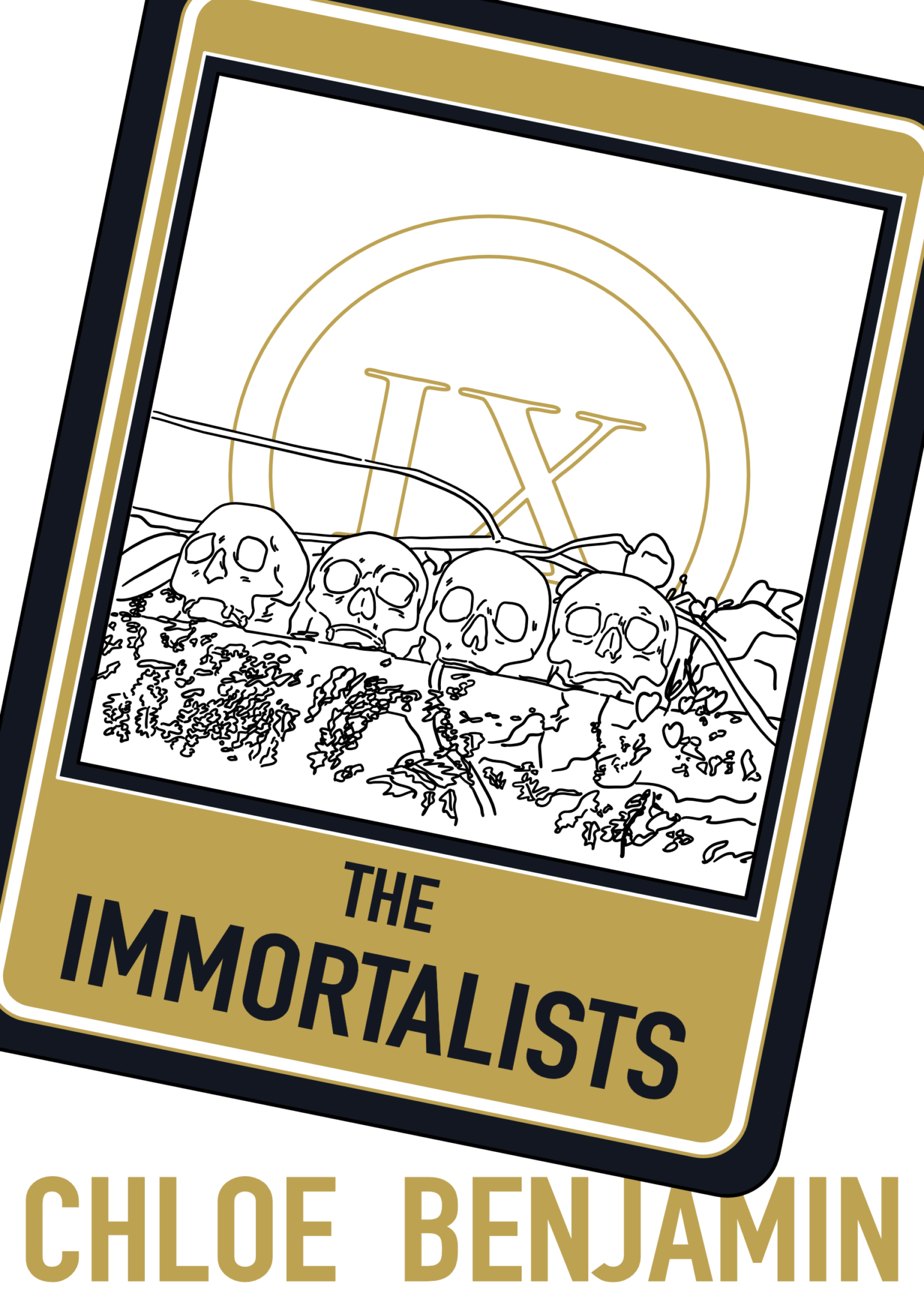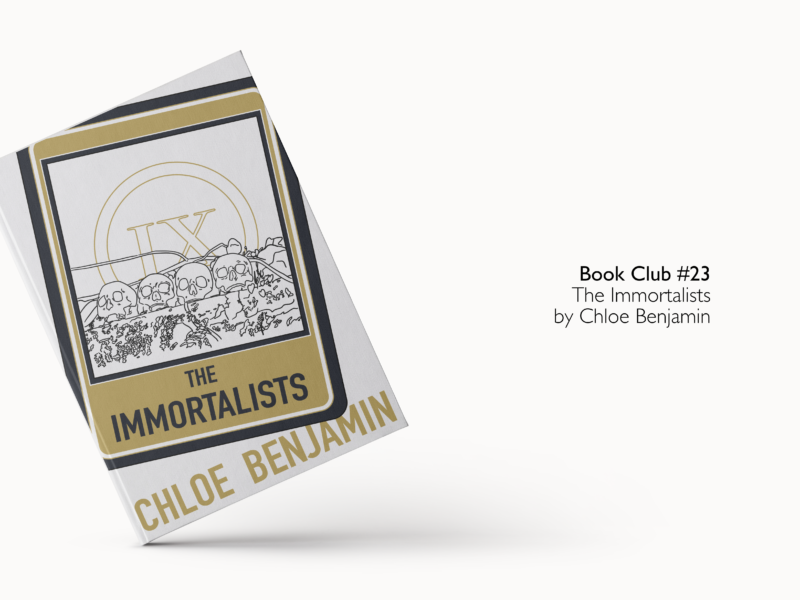The Immortalists by Chloe Benjamin is the first book I’ve ever read from start to finish on my phone. In a bid to find a reading groove that works for me I’ve been trying out new reading media. By about half way through this one, I was actively looking for any chance I could to pick up my phone, not to scroll blindly through Twitter, but to read. Anything that gets me looking forward to my tube ride is pretty darn powerful, let me tell you.
The Immortalists follows the story of the four Gold children who, in New York’s Lower East Side in 1969, venture out to see a fortune teller to hear the day they will die. It toes the line between page turner and thought provoking depth brilliantly. Essentially Chloe Benjamin asks her readers “If you knew the date of your death, how would you live your life?” Then she gives them a story which is “dazzling family love story and a sweeping novel of remarkable ambition and depth” that “probes the line between destiny and choice, reality and illusion, this world and the next” to make the question a little more real and a little more visceral to ponder.
Benjamin has a way of making what could be ordinary lives feel extraordinary and completely compelling. It’s a book that can make you want to get on the Victoria line in rush hour. This is particularly impressive because you know exactly how the story and in fact each section of the novel will end as they each include the death year of the sibling whose story are about to follow.
I won’t give anything more than what the blurb offers about each of the Gold’s stories so you can enjoy them in full.

I wanted to riff a little on the idea of tarot and predictions as well as mortality in this alternative cover design.
Klara’s story was the one that engaged me most in spite, or perhaps because, of the fact that we’re completely different. I could never imagine myself clinging to a bit of metal with my teeth and falling from a great height with only the strength of my jaws to protect me in the name of magic. But I think hers is the reaction to impending death that would most closely mirror my own. That said, I could understand and empathise with each of the Golds despite them all approaching the same subject in such contrary ways
These wider themes of death and family ties are woven throughout the stories as you start to see the impacts of the prophecy on each sibling’s choices. But they really come to a head in a more overt way in the final section of the novel, where Benjamin stops having her characters ask about death but about life with Varya and her turn to scientific research. That contrast, to being with life at the end of a story, especially when you know exactly how it will end, is what really elevated The Immortalists for me.
This is one I’d recommend to anyone who loves a good story. That’s how much I enjoyed it. Each of the Gold’s stories is more compelling than the next and as I closed the final pages I found myself considering what death means to me in a slightly different way.
SOME QUESTIONS TO PONDER AS YOU READ…
- The four Gold children have very different reactions to finding out when they’ll die, what would you change in your life if you’d visited the fortune teller?
- Which character, and section of the story, did you engage with the most? Do they align with your own ideas about death?
- How are the themes of family and death interwoven?
- The Immortalists begins in 1969, if the Gold’s had been children today how would their lives have been different?
- With fortune tellers and magicians as major characters, The Immortalists, seems to have at least one hand in a world of more spiritual prediction. What difference would be made if the prediction had come from the fortune teller of today, AI?
IF YOU WANT SOME FURTHER READING TRY…
- This short review from The Observer claims The Immortalists remains a boundlessly moving inquisition into mortality, grief and passion.
- For Vox, Constance Grady focuses in on the siblings at the heart of the novel.
- Fellow author, Jean Zimmerman, says “The reader will likely be thoroughly taken by the world of the Gold siblings, in all its shades of brilliant color. It’s not a totally comfortable realm, since we know all too well how this tale’s going to end, but getting there is lovely” in a review for NPR.
- Read Chloe Benjamin’s own thoughts on the novel and her writing process in this original essay for Powell’s.
IF YOU WANT MORE BOOKS LIKE THIS HAVE A LOOK AT…
- Chloe Benjamin’s The Anatomy of Dreams
- Meg Wolitzer’s The Female Persuasion
- Sally Rooney’s Conversations with Friends
- Elena Varvello’s Can You Hear Me?


